Contents
We all have to deal with inflammation in our bodies at some point. Inflammation can arise from many health issues, such as injury, joint problems, or even catching a cold. Therefore, inflammation will always be a part of our biological functioning. It is one of the ways our body fights against harmful toxins, infections, and injuries.

Acute and Chronic Inflammation
Acute inflammation is one thing, but chronic inflammation is different. Acute inflammation typically persists for a few days, whereas chronic inflammation can run from several months to years, depending on the body’s ability to respond to harmful pathogens. However, there are ways to deal with painful inflammation while giving the body time to heal.
Foods and Anti-Inflammatory supplements To Combat Inflammation
Our diet and lifestyle are crucial to our health, including how they help treat chronic inflammation. The food we eat contains certain minerals that can help fight inflammation. Therefore, we can boost our diet by eating the right ‘anti-inflammatory’ foods and taking supplements that specifically treat the problem.
Turmeric
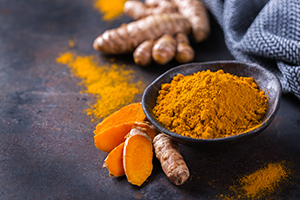
Turmeric is renowned for its anti-inflammatory properties thanks to a compound called curcumin. Turmeric can help reduce inflammation and swelling around injuries. It can help alleviate osteoarthritis and rheumatoid arthritis symptoms and relieve inflammation caused by diabetes, heart disease, and bowel problems.
Omega-3 Fatty Acids
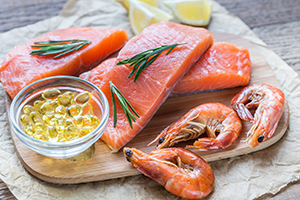
One of the most popular anti-inflammatory supplements is omega-3 fatty acids, commonly found in fatty fish such as cod and tuna. Those who have taken these supplements will usually vouch for their effectiveness. It is so effective that many people have replaced their over-the-counter nonsteroidal anti-inflammatory medications, such as ibuprofen, with omega-3 fatty acid supplements.
Green Tea Extract
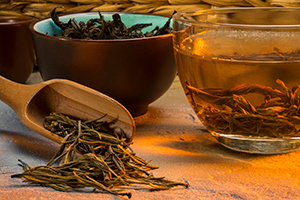
Traditional herbal medicine uses green tea to deal with various ailments. The anti-inflammatory properties of green tea are derived from epigallocatechin-3-gallate (EGCG), caffeine, and chlorogenic acid – all known to be powerful antioxidants.
Toxins in the body can lead to inflammation, which is how we deal with harmful elements in our cells. Green tea decreases inflammation as a precaution against oxidative damage to cells.
Bromelain
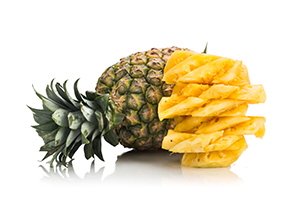
Do you know why you feel burning when you eat too many pineapples? That’s because of bromelain, a powerful enzyme abundant in the fruit. Bromelain contains anti-inflammatory properties and performs as well as nonsteroidal anti-inflammatory drugs.
Bromelain can help relieve inflammation, pain caused by injury, and muscle soreness. If you see some of the supplements on the market, you may find that many expensive supplements for inflammation pain include bromelain as the main ingredient.
You can purchase Bromelain Supplements on their own, or ‘Bromelain and Turmeric Supplements’ are available too.
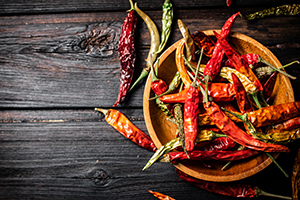
Capsaicin
Just as pineapples contain bromelain, peppers contain capsaicin. Capsaicin is the ingredient responsible for making hot peppers hot and is beneficial in reducing pain caused by inflammation and nerve and muscular pain. Eating lots of chili peppers is unnecessary to help alleviate pain; you can take supplements or even use capsaicin creams instead.
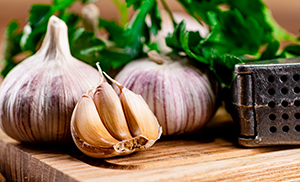
Garlic
Thanks to its allicin ingredient, garlic is a fantastic food with anti-inflammatory properties. A potent anti-inflammatory compound, allicin is known to strengthen the immune system while fighting off disease-causing viruses and bacteria. Plus, long-term use of garlic supplements helps reduce and lower the risk of developing chronic inflammation.
Zinc

Many foods contain zinc, including meat, poultry, nuts, seeds, and eggs. Zinc is also a common ingredient in various multivitamin supplements, and for good reason. It is well-known for its anti-inflammatory properties, which can help boost the immune system and decrease the rate of infections.
Zinc is also effective in reducing oxidative stress, or the premature aging of our cells, which often leads to inflammation and increases the risk of various illnesses.
A direct link between zinc and inflammation has been found, and many people with arthritis also have a zinc deficiency.
Suffering from inflammation is not a comfortable experience. Acute inflammation can lead to discomfort, while chronic inflammation can have long-term side effects on the body and affect a person’s mental health. Excess pain can cause symptoms of depression, as life can feel like it’s not worth living. Therefore, anti-inflammatory supplements may be helpful for many reasons!
DISCLAIMER: All content on this website is presented solely for educational and informational objectives. Do not rely on the information provided as a replacement for advice, diagnosis, or treatment from a qualified medical expert. If you are pregnant, nursing, or have any preexisting medical concerns, talk to your doctor before using any herbal or natural medicines.
References
- Daily JW, Yang M, Park S. Efficacy of Turmeric Extracts and Curcumin for Alleviating the Symptoms of Joint Arthritis: A Systematic Review and Meta-Analysis of Randomized Clinical Trials. J Med Food. 2016 Aug 1;19(8):717-29. doi: 10.1089/jmf.2016.3705. PMID: 27408487.
- https://pubmed.ncbi.nlm.nih.gov/27408487
- Li K, Huang T, Zheng J, Wu K, Li D. Effect of marine-derived n-3 polyunsaturated fatty acids on C-reactive protein, interleukin 6 and tumor necrosis factor α: a meta-analysis. Brain Behav Immun. 2014 Dec;41:22-31. doi: 10.1016/j.bbi.2014.06.010. Epub 2014 Jun 21. PMID: 24962047.
- https://pubmed.ncbi.nlm.nih.gov/24962047
- Black CD, Herring MP, Hurley DJ, O’Connor PJ. Ginger (Zingiber officinale) reduces muscle pain caused by eccentric exercise. J Pain. 2010 Sep;11(9):894-903. doi: 10.1016/j.jpain.2009.12.013. PMID: 20418184.
- https://pubmed.ncbi.nlm.nih.gov/20418184
